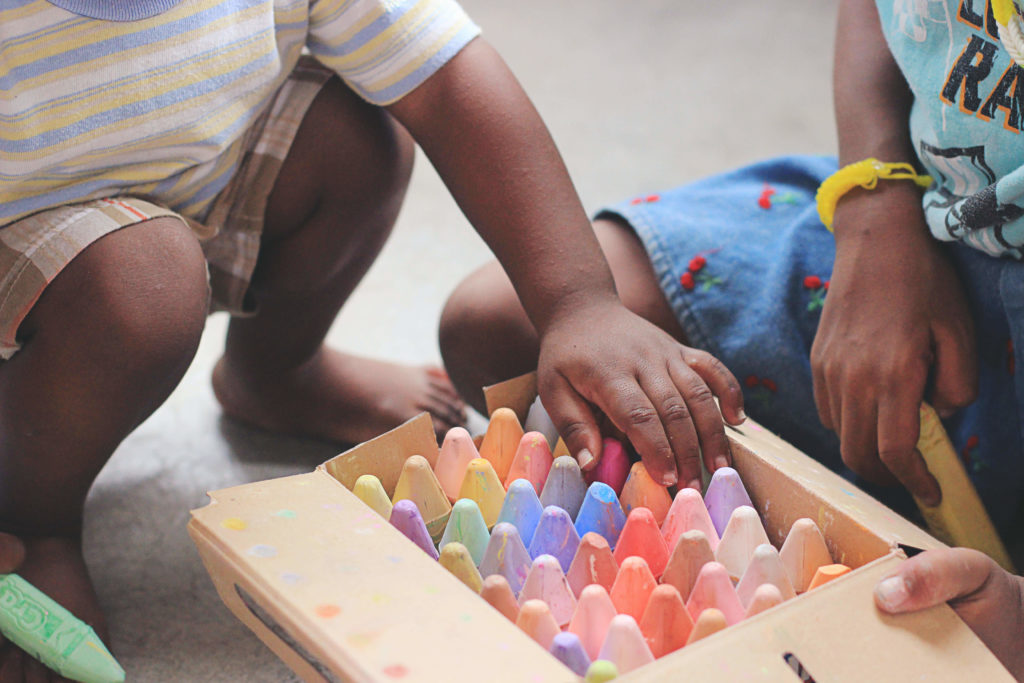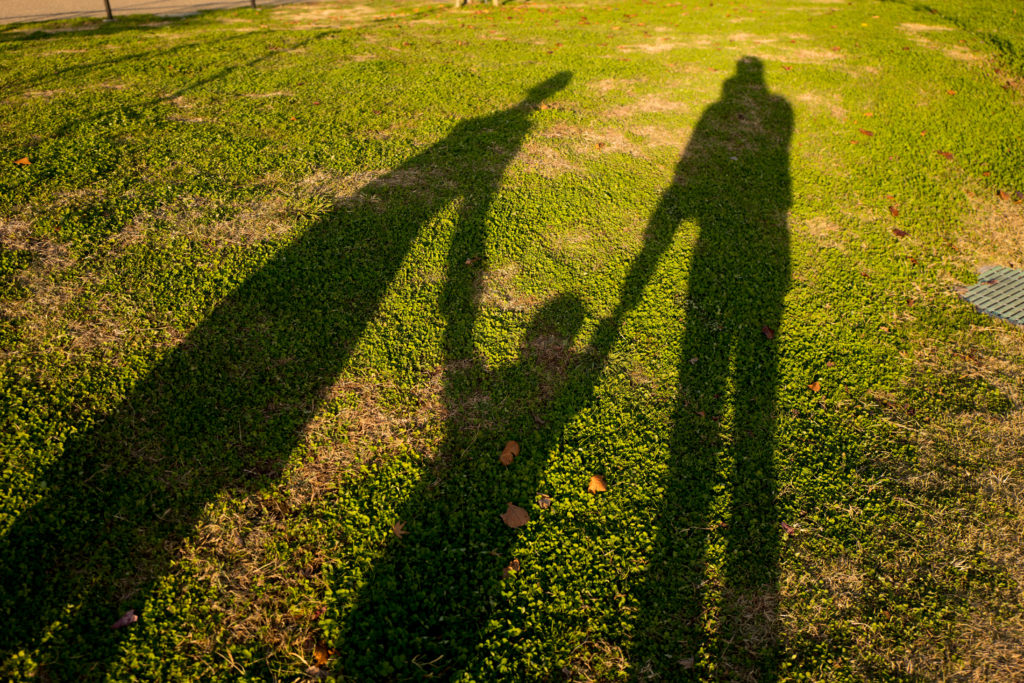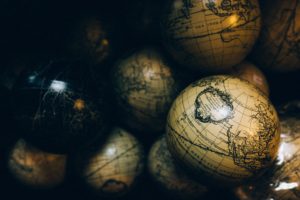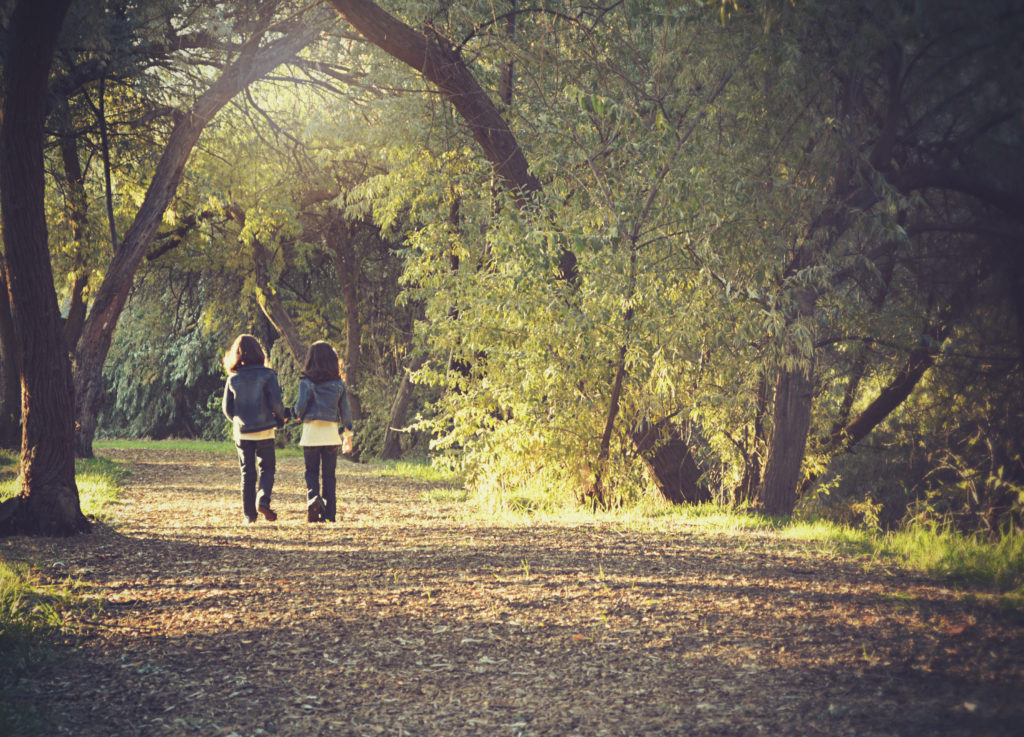Languages filled the air. French. Arabic. Spanish. Swahili. A world contained in a basement room. My English-only brain has a difficult time with all of them. Translation was well covered on this particular Tuesday, so I spoke the only other language I know: the language of children.
Each week that I volunteer with our local refugee community is a mystery and a surprise: who will be there? how many people? From which countries? Will anyone speak a little English?
That day, the room was full. Numerous families with multiple small children, attending one of eight required cultural orientation classes as newly arrived members of our community. It is an exhausting stretch of time for a rested adult. For children, the two hours drag on.
Playing with children is never my first instinct (you can ask my own kids) but on Tuesday mornings I will myself to do what needs to be done. So, I brought the bin of blocks out to the main meeting area. These ubiquitous colored-cardboard church blocks that look like bricks are a safe option almost anywhere. I dumped them on the floor. I couldn’t use my voice to call the children to me, so I sat on the floor and began building a tower.
Sometimes invitation needs no words.
The first child approached with cautious interest. I handed him one of these brick-blocks and he held it with two hands. A second child came close and I handed one to him. Soon, the other children took interest and eventually six children surrounded me on the floor as we built with blocks.
I could not take my eyes off of them.
Three were Ugandan/Congolese. Three were Syrian.
Children of conflict, so the news says, but that morning they stacked blocks as tall as they could reach and higher (with my help) before the little boy with mischief in his eyes knocked down the tower. I have one son, so I also speak the language of boys and even though we could not communicate with words, we were having fun.
We did this again and again. Build the tower tall. Knock it over. Repeat.
We attempted variations stacking the blocks vertically until they toppled. We built a “road” stretching the blocks from one side of the room to the other. My favorite was when we arranged the blocks into a rectangle, and three of the boys sat down inside the rectangle. Two Ugandan, one Syrian, and they sat inside the block shape as if they were lifelong friends.
I wanted to snap a picture but my phone was across the room, and I would have needed to ask the parents’ permission and language was already a barrier. I captured the moment in my mind. I hope you can see it, too.
What impressed on my brain was how these children played. Like any child anywhere. I could have been playing with my own children at that age. There was no difference.
Later, we walked through the city to the market, our bi-weekly adventure to introduce the newly settled refugees to the fresh produce and food offerings at the indoor farmers’ market.
The youngest Syrian boy ran circles around his family until the father finally picked him up and slung him over his shoulder. I could not keep the smile from my face, for my husband would do the same when our son got rowdy or restless. The boy laughed and squirmed and the father kept at it as we walked. The girls took turns holding hands with their mother and each other and sometimes their father.
I offered my hand to one girl and she took it as we passed through the streets. We all stopped to watch the water squirt up from the ground in a splash pad/fountain near the courts building. The children watched in awe. Their restraint at not jumping into the water was admirable.
A Congolese couple took turns taking pictures in front of this building, proof of their new life in the United States. Their smiles, they are contagious, and already I feel they are my friends. I would greet them on the street or anywhere in public.
We are only a few blocks from the market when the young Syrian boy slaps me on the lower back, either to get my attention or because it is what mischievous little boys find funny. I offer him my other hand, and he takes it, and I walk this way for the remaining blocks, holding the hands of two Syrian children, exchanging smiles with their mother, laughing with the father, as if all is right with the world.
Yet as I hold the hands of the children I cannot shake from my mind the images of war I have seen from their country. The children dead or injured. The weeping parents. The desperation and relief of those who have taken the risk to leave and who make it to another shore. I both want to know and don’t want to know which of these is part of this family’s story.
This girl with the pigtails, skipping down the street, her hand in mine is the global refugee crisis in the flesh.
This boy with his antics so much like my son is the issue everyone is talking about, and I can feel his small hand in mine.
A week later we gathered in a different room in a different part of the city. Fewer children were present but two of the Syrian children and one of the Ugandan children were there. They begged me with their eyes for paper and colored pencils and they scribbled on scraps, delighted to be doing something. They tapped my leg, my arm, whatever they could to get my attention. They spoke to me in Arabic, their eyes wide with pleading, and I replied in English that I did not know what they wanted.
The little girl, the older sister, whispered in her brother’s ear, and it is the exact same thing I have seen my daughter do with her brother, the younger one.
We are not so different, no matter our country of origin, the language we speak, how we dress, whether our hair is covered or not.
We can talk all we want about policies and plans and provisions. We can share and react and comment on social media. We can fear and hate and protect in the name of security.
What we cannot do is forget or ignore or deny the issue at hand. Quite literally, the issue was at the end of my hand, and I will not watch the news now without thinking of these children. The lucky ones, I call them, because they are among the 1 percent of all refugees who reach resettlement.
And on a Tuesday morning in a small city in Pennsylvania, I got to hold their hands.



